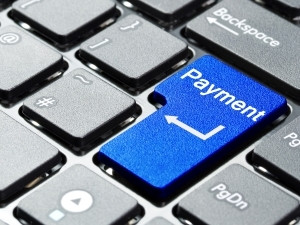
The South African Institute of Tax Practitioners (SAIT) has expressed concern at the decision by the South African Revenue Service (SARS) to withdraw the option to make direct payments to it via its eFiling Web site, without additional authorisation.
SARS will, this month, phase out the payment facility via its eFiling system. The so-called "debit pull" facility allows SARS to collect outstanding tax from a taxpayer's account and can be authorised by tax practitioners. Taxpayers will now have to use other methods of payment, such as credit push transactions, over-the-counter payments at a bank, electronic transfer using Internet banking, or payments at a SARS branch.
SARS media unit deputy spokesperson Marika Muller says there are risks associated with the debit pull option, because payment was not guaranteed and could be reversed at the request of the client, or could be rejected due to insufficient funds. "SARS was not able to validate that the person authorising SARS to initiate the debit pull was mandated to do so, which could result in payments being withdrawn from incorrect accounts. Both the taxpayer and SARS could be placed at risk as a result of such unauthorised actions," says Muller.
Muller explains the credit push function means the payment transaction will be performed by the bank account holder. In the case of SARS, eFiling advises the taxpayer of the amount that needs to be paid via a payment request from the bank and the taxpayer then physically authorises this request, she explains. "Credit push payments are considered irrevocable and can only be made if the account holder has the necessary funds."
Not the answer
Prof. Sharon Smulders, head of tax technical policy and research at SAIT, says the debit pull facility did raise some security concerns, but withdrawing it within a month is not the correct solution.
"Anything to prevent fraud is a good thing, but I think, practically, this is not going to work in combating fraud," says Smulders. "I think it is going to create frustration for taxpayers and tax practitioners. It will result in a lot more penalties and interest being paid, because now we are pushing this responsibility back onto the taxpayer, which in itself is a good thing, but the problem is the taxpayer has paid the tax practitioner to assist them and now they can't actually assist them."
Smulders notes that a lack of Internet access for some taxpayers is a real concern. At the moment, tax practitioners can do the payments on taxpayers' behalf, meaning they do not need Internet access and don't have to go to a bank or SARS office, she says. "I think what SARS doesn't quite realise is how much money the tax practitioners are bringing into SARS on time, because they have this option. By putting the responsibility back on the taxpayer, I think there is a lot of money that is going to be paid late."
The SAIT has presented SARS with alternatives and is in the process of setting up a meeting with the entity to discuss these, says Smulders. One of the alternatives is to introduce a more user-friendly and accessible user system, which presents more safeguards and security measures in the existing debit pull facility, rather than discontinuing the system, she says.
"We could perhaps use the SARS eFiling mandate to be signed by all taxpayers prior to the tax practitioner being allowed to activate the taxpayer on their profile. So you could get some sort of authorisation [from taxpayers] to make this payment on their behalf," she explains.
Smulders further notes that a month is not sufficient time to phase out the payment system, as the details surrounding the decision were not clearly explained and some of the banks are not aware of the payment option being withdrawn.
Share